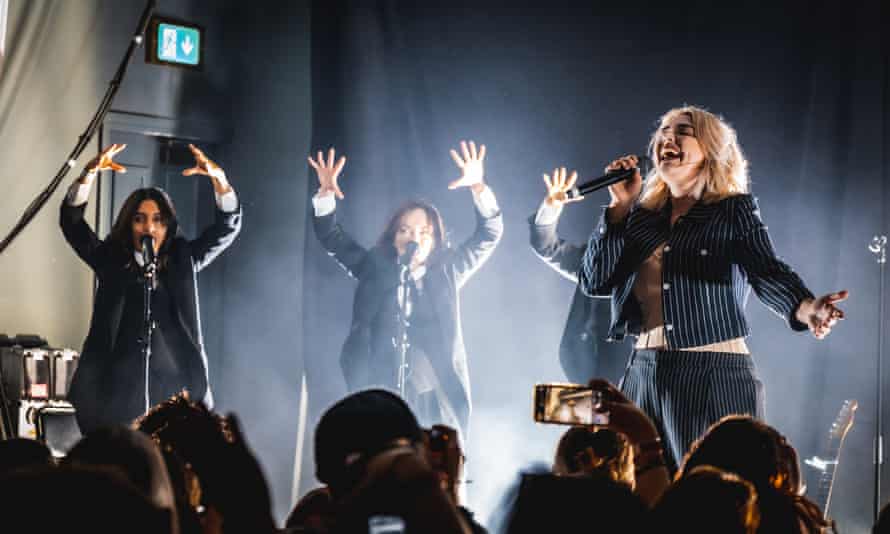I started making music full-time at the age of 18. Arctic Monkeys had just blown up and the idea that you could be from Sheffield and become a global superstar hung thick in the air. I believed if I worked hard enough, I could be a star, too: it was just a matter of time. But this was also the dawn of MySpace. Suddenly years of playing, writing and recording wouldn’t be what broke you; it could happen overnight if you played a set from your bedroom and you had a song about being a punk rocker with flowers in your hair. I remember watching a piece on Look North about how Lily Allen had got signed after being spotted on it. I realised I had been putting my energy in the wrong place, and the gnawing feeling that I could be missing the boat began.
Fast forward 17 years and your ability to understand and work at social media is the No 1 way to grow your reach as an artist. Every record label subscribes to this idea, and to be fair to them, the numbers speak for themselves. Arguably, though, the numbers have come to mean more than the creativity that creates them in the first place. It’s left a lot of artists, mostly women, frustrated at being asked to drum up content for platforms such as TikTok in addition to making personal, considered music: just in the past few weeks, FKA twigs, Halsey, Charli XCX and Florence have gone viral for protesting at their respective labels’ insistence that they should fabricate a viral moment.
I have always used social media as an extra arm to my art. I have a need to be completely seen and understood as it’s the grey areas of life that have always caused me the most trouble. Being able to tweet and Instagram the realities of how it feels to be me only acts as a great accompanying pamphlet to my creative agenda. I do it on my terms, when I want, as a woman in her 30s who has a pretty solid sense of self. I fear for artists without that. It can feel quite degrading – not to mention psychologically dangerous – to tie your only chance of success to your ability to perform the kind of personality that plays well online, and not your work.
I think it’s no coincidence that the recent examples of artists who say their labels have forced them to get on TikTok are all women. My pub-psychologist theory is that the music industry thinks of social media as an inherently female thing – it’s just another patriarchal idea that women and gay men are interested in the minutiae of other women, while men are just too busy and important to be interested in that stuff. Much like male artists are just too important and busy to create it. I’m generalising – Ed Sheeran has also expressed his ambivalence about TikTok – but there is something darker and more invasive in the way that women are encouraged to use it. It only furthers the nagging feeling that as a female artist your music and art aren’t taken as seriously.
But what do you do if sharing parts of yourself isn’t for you? In my 20s I would have blindly believed the authority of labels and management and done anything to grab what might be a ticket to success, with no thought for the consequences it might have later on. It feels as though the artists decrying TikTok (and the many fans tweeting their dismay about it too) are seen by the industry as being too precious or old-fashioned. But ultimately, the artists that do have a good bash at TikTok will prevail in the ever hungry endless machine, at least for now. It moves without you. So you have no choice.
Despite the industry’s total focus on TikTok, it still feels too early to know whether throwing shit at a wall and hoping something viral sticks actually translates to an enduring, committed fanbase; and as a result of that, space for the artist to create and experiment. (That’s the dream we’re all chasing, by the way, not fame.) Arctic Monkeys and Lily Allen did build careers off early forms of virality, though back in 2005, their grassroots success was something labels couldn’t afford to ignore; now, seemingly no amount of actual success or career longevity gives an artist a free pass to opt out of the virality trenches.
All creative industries have to be able to adapt. In my opinion, what really engages consumers across a broad demographic range is excellent songs, and artists need to be given space to write them and then share them in a way that feels true to their art.
Most importantly, a fan needs to be able to trust an artist. As the “label made me do it” TikToks become some grotesque, meta way to go viral, we end up further from the authenticity of the art than ever.

